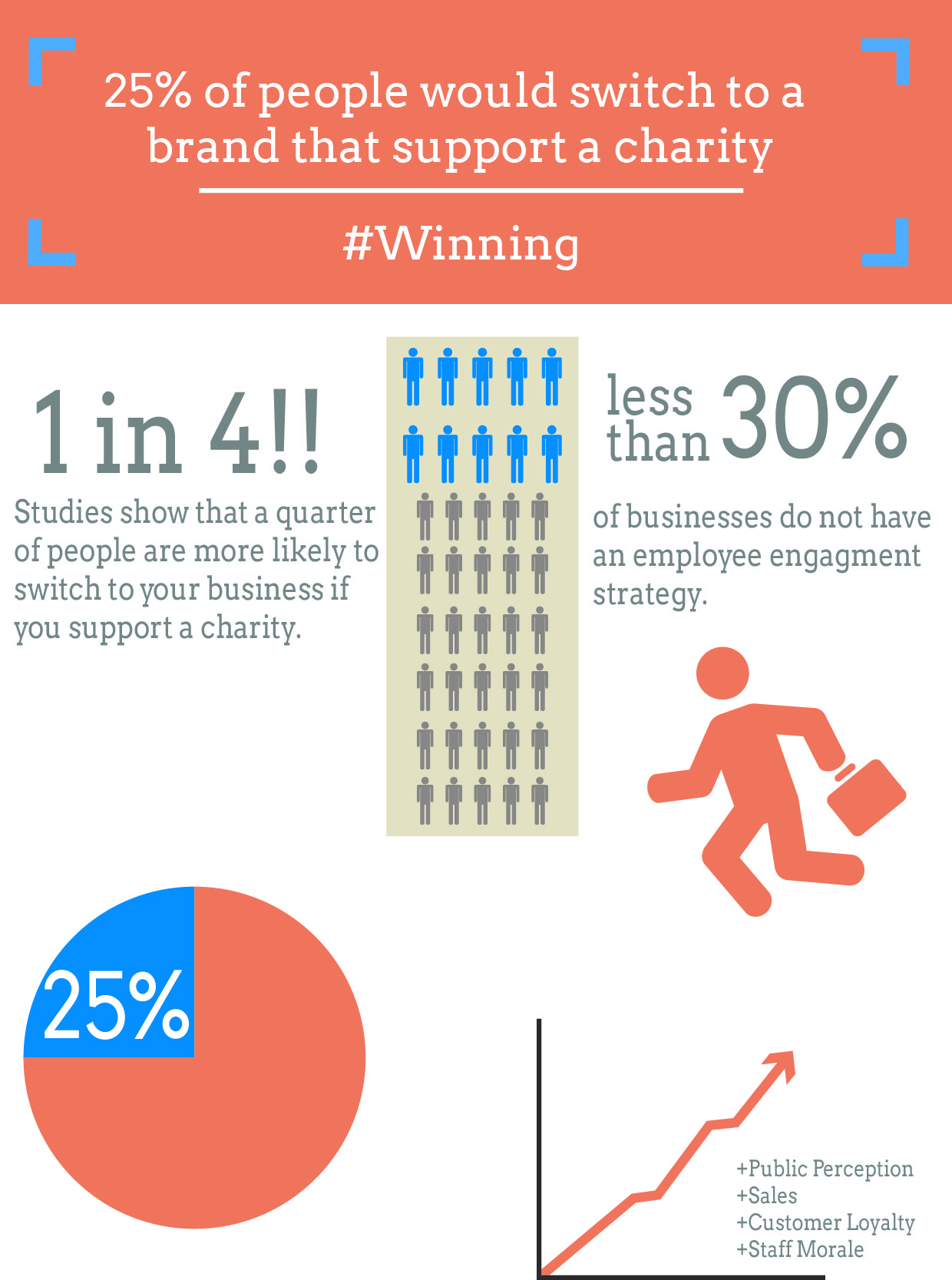Studies show that a quarter of people are more likely to engage your business for this reason. And no, it’s not your clever marketing strategy.
In such a crowded market, business are always looking for a way to stand out from their competitors.
And it’s not easy. There are so many businesses operating in the market, doing what you do and in some cases, doing it on a much larger scale with a much bigger budget.

So, how do you differentiate yourself from the others? The answer may be simpler than you think.
Many savvy small businesses are affiliating themselves with charities as part of a shrewd marketing strategy that is far cheaper and more effective than traditional marketing. Rather than simply handing over a cheque, companies are increasingly establishing mutually beneficial partnerships that provide a more holistic approach to delivering outcomes that benefit both the business and the charity.
Studies have shown that a quarter of consumers would change brands or suppliers to a business that is supporting a charity. One. Quarter. That is 25% of the market share that you could be attracting by showing clear corporate social responsibility.
Here are 10 benefits you gain from partnering with a charity:
1. Enhance public perception of your brand
2. Increase sales
3. Leverage the partnership to gain positive media coverage
4. Create a unique selling point over your competitors
5. Gives consumers a strong incentive to switch to your brand
6. Increase long-term customer loyalty
7. Improve relationships with supply chain and retailers
8. Improve employee morale and loyalty
9. Gain credibility - consumers trust charities and people who
partner with them
10. Reach an audience you may otherwise be unable to access
But not all charity partnerships are created equally. In order to be successful, the partnership needs to tick the following boxes:
1. Choose a charity that shares your target market and gives you meaningful exposure.
For example, if you are providing childcare services, you will not get the best business outcome by partnering with an animal shelter. Instead, find a children’s charity that appeals to the same people you are trying to reach. Charities often have a huge database of supporters which opens up an audience that you otherwise may never reach.
2. Look for staff engagement opportunities.
We all agree that the happier and more satisfied staff are, the better their commercial outcomes will be. And yet, less than 30% of Australian businesses have a strategy for keeping their staff motivated and engaged. Charity partnerships provide a great avenue for team building and involve your staff on a different level. Staff volunteering opportunities or team challenge events are an excellent way to facilitate engagement.
3. Choose a charity that you, and your staff, are passionate about.
This will make the whole experience more enjoyable for your team and will provide a truly satisfying partnerships for you and the charity you are supporting.
Of course, I haven’t covered the main reason for supporting a charity – most of us are good people who want to do our bit and make a difference in the world. Partnering with a charity allows you to make a meaningful contribution while growing your business and improving your bottom line.
#winning.
For information about local charity partnership opportunities, contact Nermeen Yacoub from the Children’s Medical Research Institute, Westmead, on (02) 8865 2838.